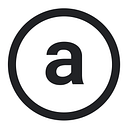Building the Decentralised Web — Part One: The Problem
This is the first in a series of blog posts that will define the Arweave organisation’s strategy for building a new, decentralised, immutable web. This first installment will discuss the problems with the existing web, and in later posts we will detail our proposed solutions to said problems.
The road to this new type of decentralised web will almost certainly be as surprising and chaotic as the original web. What we lay out in these blog posts is just a starting point. No doubt plans, communities, and utilisation of the technology will change between today and the eventual integration of this new system into the mainstream. The role of the institutions at the heart of the Arweave project is not to dictate how this new system should work or how people should use it — attempts to do so would surely fail. Our job, instead, is to provide the catalyst necessary to get the ecosystem up and running, then step back and support the community’s desires as best as we can, letting them take the reins.
So, without further ado:
The Problem
Power over the internet has become centralised in the hands of a small number of people, often working against the wishes of the majority. Simultaneously the web has become so central to our way of life, that it has become an integrated part of our thinking and decision making. What started as a grand experiment in the free-flow of information has become increasingly controlled, monitored, and modified by a powerful minority of actors.
The core issues include:
Mutability of information access
Information available today may not be available tomorrow. Publication on the web used to be synonymous with making that information permanently available. While this idea was never wholly accurate, it has become decreasingly so over time — content is lost, censored, and altered at an alarming rate on the modern web. The fact that the HTTP status code ‘404’ has now entered the mainstream vocabulary is a testament to how common this phenomenon is.
Control over publishing and free flow of ideas
Free expression on the internet is now mediated by a small number of centralised parties. Say something they don’t want to hear? Expect to have your content removed. Increasingly, social networks, blogging, and other publishing mechanisms are enforcing stringent rules on content that sometimes cause censorship of valuable information.
Pervasive surveillance
Governments and corporations alike now monitor and log your web searches, the content you read, and the posts you make. This would not be important perhaps, if it wasn’t for the fact that the web has become an extension of most people’s brains.
Corporations sell this data about your inner thoughts to advertisers that use it to make you more likely to buy their products (it really works — just check out Google’s market cap).
Governments store this data in bulk, building a fuzzy record of your thoughts and psyche over time. Many people trust their current governments, and subsequently do not view this surveillance as a concern. The issue then, is perhaps not what your current government will do with the data, but what a future government might do with it. Are you totally confident that a government you do not trust with your inner thoughts and feelings will never come to power in your country? A large number of recent elections in the western world show us that even the most democratic nations can be unpredictable in their choices.
Now we have specified some of the problems the next web needs to address, our next blog post will describe the components that will be needed to embed this system in our wider culture.
If you would like to keep up with the Arweave project, please drop us your email on our website.
-arweave-team
